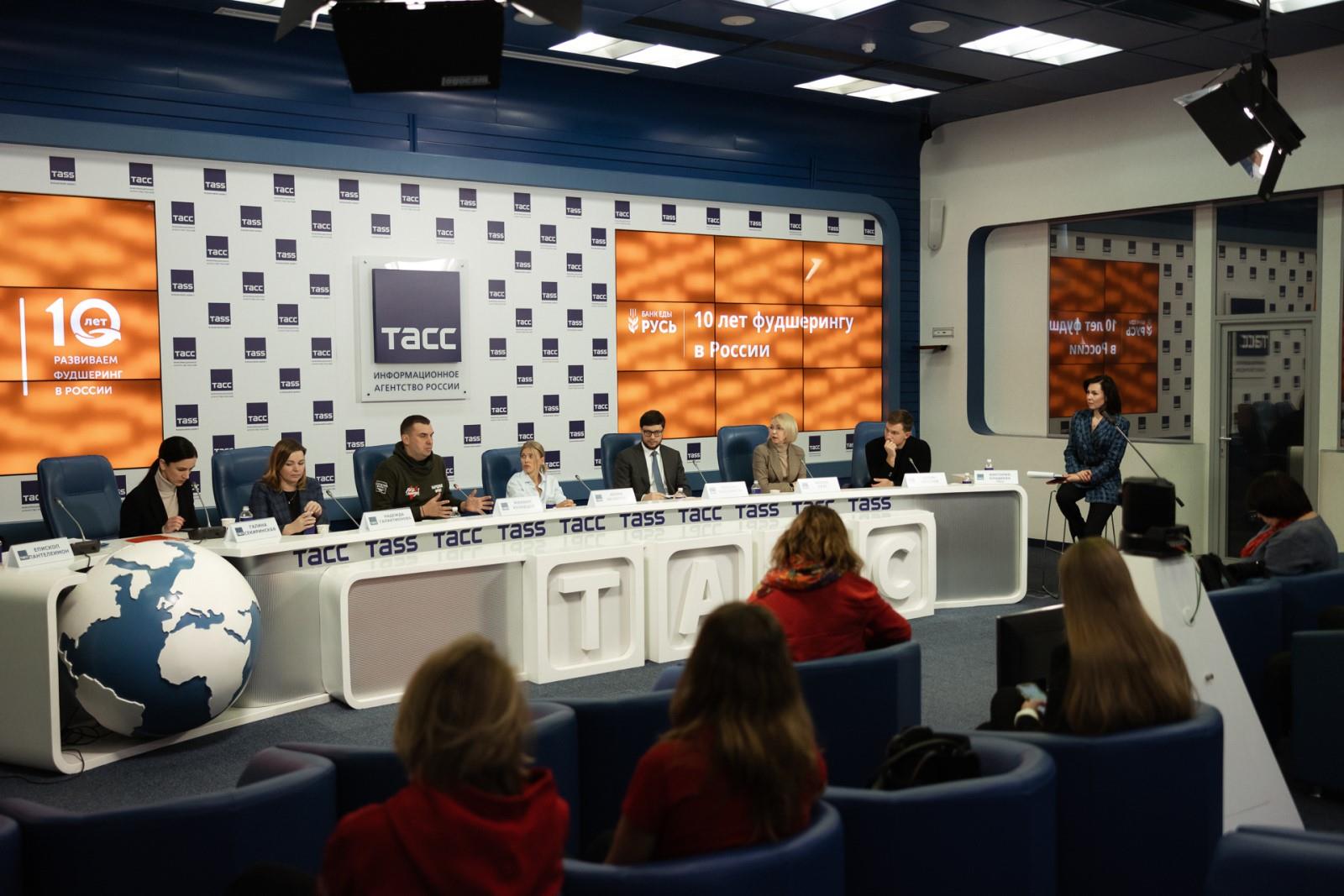Foodbank Rus feeds the poor for the past 10 years

Photo: ©TASS
The technology of food sharing – fair distribution of food among people in need – was first introduced in Russia in 2012. How does food sharing help feed those who find themselves in a difficult life situation? How does this practice help reduce food waste? What more needs to be done to increase the impact of this noble undertaking?
Yulia Nazarova, President of Foodbank Rus, which has recently celebrated its 10th anniversary, spoke about this in detail at a live conference in the TASS press centre.
“My generation lived through the time when there were food stamps and, consequently, understands that food is an invaluable resource,” says Yulia Nazarova. “I remember being a schoolgirl standing in long lines for bread and other scarce goods. I was aware of food shortages from the very childhood, and as an adult, I began to wonder how to solve this issue. It turns out that the solution already exists – it is a food bank with its smart technologies, care for people and nature.”
“The idea of smart consumption has shaped my relationship with food and my life path ever since. That is why, together with the founding team, we registered a food bank in 2012 and began to develop food-sharing technology in Russia.
Using high-quality unsold products rationally allows changing people’s lives for the better and conserving natural resources, while contributing to the development of the circular economy in Russia. Our intention is to make conscious production and consumption the norm and the lifestyle in our country. To scale it up in all regions, we are developing a national network of food banks and organizations involved in food sharing,” said the head of Foodbank Rus.
“FAO supports the idea of conceptual and practical adjustment of all participants’ activities in the agrifood sector in order to move towards sustainable production and sustainable consumption standards,” said Oleg Kobiakov, Head of the FAO Moscow Office. “We also appreciate the efforts aimed at reducing food losses and waste (FLW), as well as the selfless work of activists engaged in humanitarian support of the most vulnerable segments of the population. Of course, Foodbank Rus, with which our Office has developed a strong partnership, is at the forefront of implementing this noble mission in Russia.
However, as food sharing activists noted during the press conference, we face many issues in this area. Thus, in Russia, in shops, cafes, restaurants and households, about 17 billion kg of food is annually wasted – this is equal to 895 000 trucks that can form a column from Moscow to Vladivostok and back.
If at least 1.2 billion kg of high-quality products and goods are used every year for their intended purpose, then we will be able to feed all people that are in need in our country – 20 million people, and also prevent 5.5 million tonnes of CO2 emissions, the representatives of Foodbank Rus noted.
* * *
“Foodbank is developing a culture of volunteering and commodity charity in Russian society. Food bank projects are simple and understandable to everyone, and therefore attract all sorts of people: students with an active lifestyle, adults and senior citizens who want to be useful, says Grand Duke Georgy M. Romanov, Chairman of the Governing Council of Foodbank Rus. “Participation in food bank projects often becomes a family tradition, thanks to which parents teach their children how to work and be charitable. We try to make food banks accessible to people in all regions of our country.”
Background:
Foodbank Rus is the largest food bank in Russia and is a member of the Global Foodbanking Network. Here are some facts:
• Foodbank Rus has donated a total of 50 million kg of food and goods worth 8.5 billion roubles to those in need.
• Each year Rus helps from 1 to 1.5 million people throughout Russia. Among them are large families and families in difficult life situations, single pensioners, disabled people and those who find themselves in extreme conditions.
• Within a decade, thanks to food sharing, Foodbank Rus has managed to prevent 230 million tonnes of CO2 from entering the atmosphere.
What is a modern food bank?
This is a systemic social infrastructure solution for helping those in need with food and essential goods. Food banks use different technologies; the social and environmental technology of food sharing remains the basic one. Food banks reduce FLW by using the maximum amount of products and goods for their intended purpose.
Thus, such organizations bring a double benefit:
• improve the quality of people’s lives by supporting them with products and goods
• have a positive impact on the environment by reducing the total amount of waste in nature and the amount of CO2 emissions into the atmosphere.
